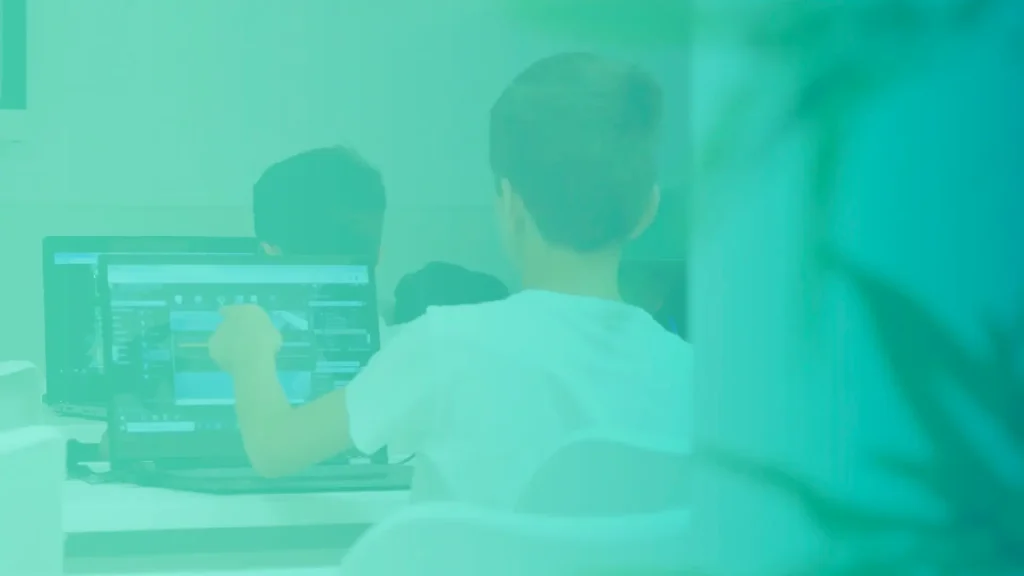
Technology extracurricular activities
En colaboración con HP SCDS. Nuestras actividades extraescolares impulsan el interés y conocimiento por las materias y profesiones STEM desde las edades más tempranas.
On-campus / Online classes live
Academic year
8 months
No son necesarios conocimientos previos
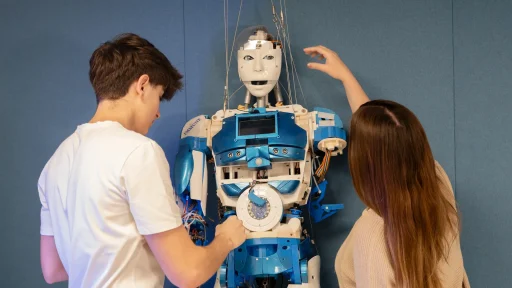
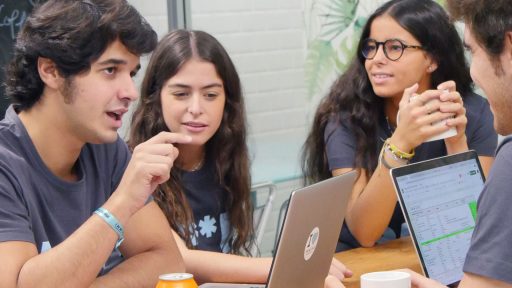
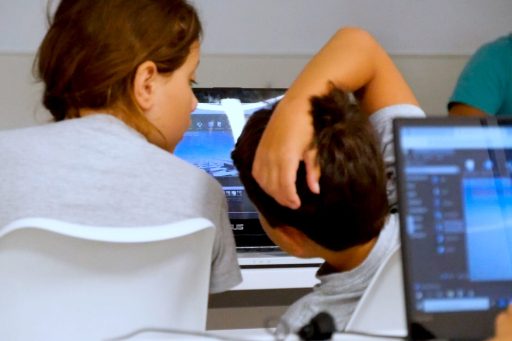
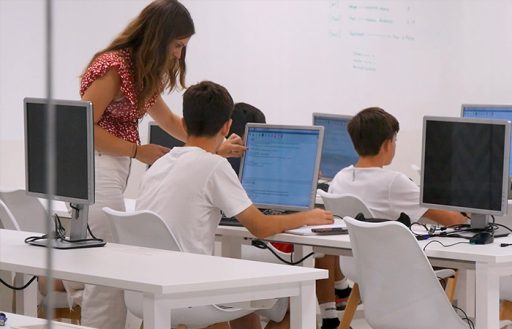
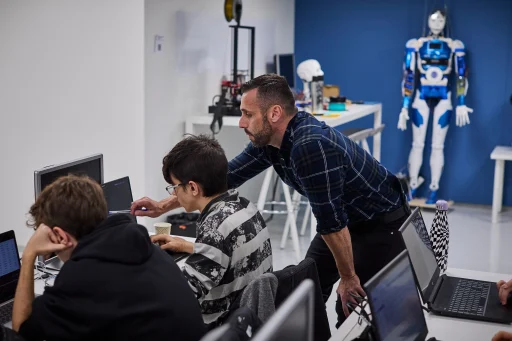
¿Por qué hacer las actividades extraescolares tecnológicas?
Young Immuners is a technological after-school programme focused on introducing children and young people to the world of programming, artificial intelligence, electronics, video games and cybersecurity. In addition to developing soft skills such as teamwork and communication.
Professional skills
- Self-learning and innovation: Additional resources are provided for students to explore and discover that technology knows no limits.
- Abstract thinking: The development of abstract thinking through programming and electronics is encouraged.
- Networking: Mentoring programmes are carried out for them to meet peers of other levels and ages.
- Social skills: Students make presentations of their projects at the completion of each module.
- Creativity: Creative thinking is encouraged so that students build beyond the classroom.
- Partnership: Students work on team projects in each of the modules.
- Competitiveness: Healthy competition is nurtured through events such as hackathons and presentation galas.
Methodology
- Ages and levels: Groups by age (between 10 and 18 years old) and 3 levels (Newbie, Intermediate and Advanced).
- Skills: The pillars are programming, electronics, artificial intelligence and video games.
- Material: Technological campus with state-of-the-art materials and electronic devices.
- Community: More than 5,500 pupils in extracurricular activities.
- Areas: Programming, electronics, video games and audiovisual design.
- Professors: Practising experts who have developed cutting-edge ideas or inventions.
Study plan
Apprentice
- Python Fundamentals Review
- We reinforce the basics of Python: variables, functions, conditionals, loops and structures such as lists and dictionaries, with practical and fun activities.
- Data Structures
- We learn to work with stacks, queues and trees, solving practical algorithmic challenges to visualise and understand how we organise and manage information.
- Handling APIs with Python
- We discovered how to connect our applications with external services using APIs, creating interactive projects such as bots or applications that consume online data.
- Applied Electronics with Raspberry Pi Zero W
- We design and program electronic projects, learning to control LEDs and sensors with the Raspberry Pi Zero and developing complete systems that integrate the previous syllabus and hardware.
- Final project
- Students combine everything they have learnt in an integrative project, developing an application or system with Python, APIs and Raspberry Pi Zero W.
Expert
- Python Review
- Numbers, strings, conditionals, loops, lists
- Lists, tuples, sets, functions
- Dictionaries
- Introduction to Git
- Operating the platform
- Access from different computers
- Commands for working in a team
- Object Oriented Programming (OOP)
- Classes
- Objects
- Turtle
- Introduction to Python's Turtle library
- Project: using Turtle and POO
- HTML
- Introduction to HTML
- Use cases
- Development of a website
- CSS style sheet
Star
- HTML
- HTML Review
- Use cases
- Website development
- Front-End HTML
- Introduction to BOOTSTRAP
- Website development with BOOTSTRAP
- CSS style sheet
- Back-End HTML
- Introduction to JavaScript
- Development of a website with several sections
- Using functionalities with JavaScript
- Django
- Introduction to Django
- Web development with Django
- Deployment
- Deployment of website
* El programa académico puede estar sujeto a cambios en función de la diferente variedad en la demanda de skills dominantes del mercado.